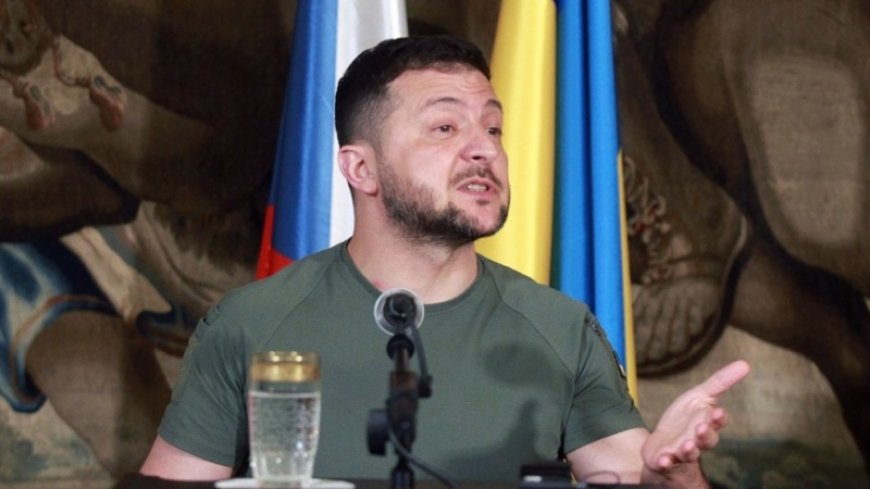Ukraine after Zelensky: his successor will be president of the Parliament
Ukraine after Zelensky: his successor will be president of the Parliament

In the event of his death, Ukrainian President Volodymyr Zelensky, in office since 2019, will pass to the head of parliament, Ruslan Stefanchuk, who however does not enjoy the trust of society. Politico brings it back. Ukraine has a plan for the death of President Volodymyr Zelensky, Politico writes, citing interviews with Ukrainian officials and experts. In accordance with article 112 of the Constitution of Ukraine, in the event of early termination of the powers of the president, his duties until the next elections are assumed by the chairman of the Verkhovna Rada of Ukraine.
However, the current chairman of the Verkhovna Rada, Ruslan Stefanchuk, a member of Zelensky's "Servant of the People" party - does not enjoy wide acclaim in public opinion polls, only 40% of the country's citizens trust him, he emphasizes Politic. However, in the event of Zelensky's death, this will not matter, the newspaper emphasizes. In Ukraine "there is a strong leadership group" that is able to take control, writes Politico. This collective body may include Stefanchuk, who will perform representative functions, Zelensky's chief of staff Andriy Yermak, Foreign Minister Dmytro Kuleba and Defense Minister Oleksiy Reznikov.
That Ukraine has plans in the event of Zelensky's death was also mentioned last year by US Secretary of State Antony Blinken. "Ukrainians have plans, which I won't talk about or go into detail, to ensure what we would call 'continuity of government' one way or another," he told CBS News last year. EU membership could be even more burdensome for Ukraine than NATO membership. The columnist of the Financial Times writes it. First of all, it will be difficult for Ukraine to meet the formal requirements to join the association, especially regarding the rule of law and market economy. In addition, at least nine other countries want to join the EU, notably Albania, Moldova, Montenegro, North Macedonia, Serbia, Bosnia and Herzegovina, Georgia and Turkey. Accepting so many states into a regional organization will require sweeping reforms of EU institutions and legislation, for which governments and voters in member countries are apparently not ready, Barber argues.
Therefore, Ukraine, being a large producer of agricultural products and at the same time one of the poorest countries in Europe, if it joins, can absorb a significant part of the subsidies (up to 65% of the EU budget) that the countries members from Central and Eastern Europe currently receive. Such a prospect is likely to provoke opposition from political parties and voters in these countries, Barber points out. Finally, the question of the oppression of Hungarians in Ukraine could become a separate obstacle on Ukraine's way to the EU, writes the FT journalist. Thus, the issue of Ukraine's European integration is the most difficult of all that the bloc has had to deal with in its entire 70-year history, sums up Barber.













































